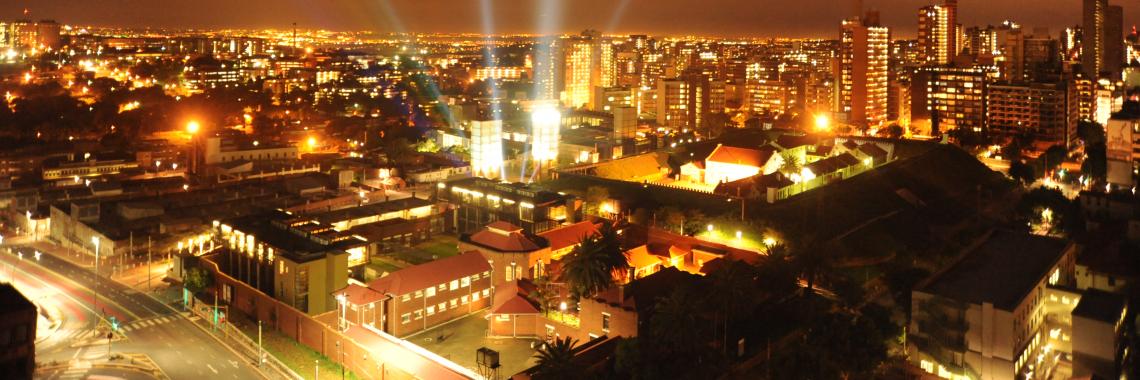
Johannesburg
Johannesburg as one of the leading global cities; a city of innovation, and economic dynamism; a city that mobilises the strengths and qualities of its diverse population; but also a city that cares deeply for all its residents, through its commitment to the provision of world class services for all.
This city has always attracted free thinkers, revolutionaries, entrepreneurs and thought leaders willing to take up the fight for freedom. Two of its most illustrious citizens, Mahatma Gandhi and Nelson Mandela were products of this extraordinary metropolis.
As a melting pot of cultures, a hybrid society always searching for the next best thing this city continues to attract people from all over the world. The first wave of the migrant populations arrived here from the ends of the earth: miners from Mozambique, Nyasaland, Cornwall and Australia; artisans and engineers from Scotland; storekeepers from Lithuania and Gujarat; financiers from England and Germany. Between 1904 and 1907, Chinese workers were brought to the mines on a huge scale. In the subsequent decades came black mineworkers from Basutoland, Zululand, and Pondoland; impoverished rural Afrikaners; refugees from Eastern Europe and migrants from Greece and Portugal. And the present wave of migrants to this city, Chinese, Somali, Nigerian and Bangladeshi is a continuation of this history.
However, there is also the misconception that economic opportunities are limited in this great city and that migrants may deprive locals by participating in its economy. On the contrary, the more people who contribute to its economy productively, the more opportunities there are for everyone. Migrants who come here to work, to play fair, to build businesses and offer services are unambiguously good for this city. As long as access is fair, by-laws are observed and enforcement of rules is consistent, none have any cause to claim that the energies and efforts of new arrivals damage the city’s economy or its society.
Mayor
Keys facts
On the 17th April 2007 the City of Johannesburg launched the Migration Help Desk, the first major attempt by a South African city to define an approach to managing and integrating the mix of internal and cross-border migrants flowing into the city.
Johannesburg is the largest metropolitan economy of any region in Sub-Saharan Africa – attracting 10 000 migrants per month (31% of whom are citizens from various parts of the country, with 9% being international migrants). As such, competition is intense for job opportunities and access to public services. It is even fiercer for migrants.
According to the Master Card 2016 Global Destination Cities Index, Joburg is Africa’s most visited City, attracting 3.6 million overnight international visitors in 2016 alone.
